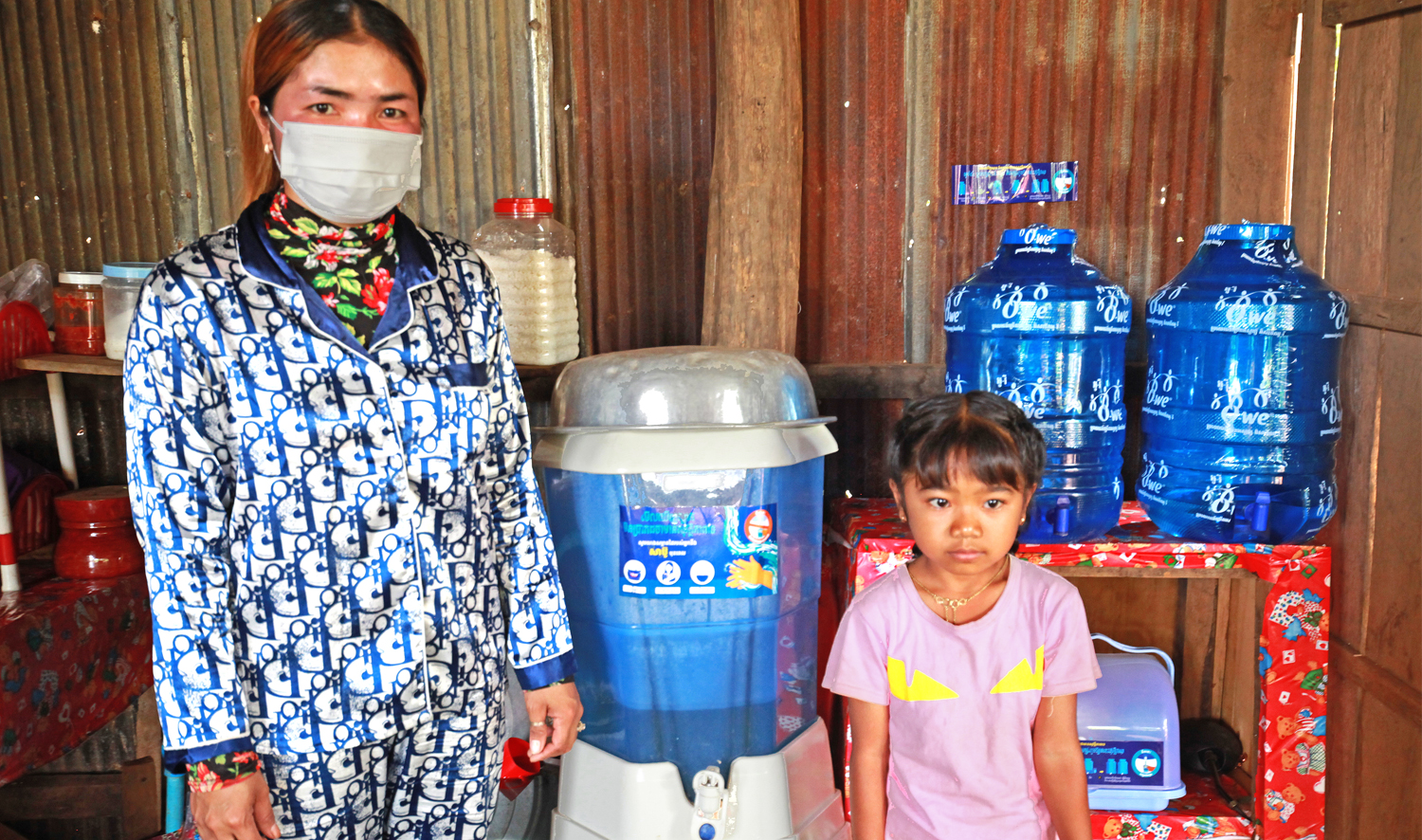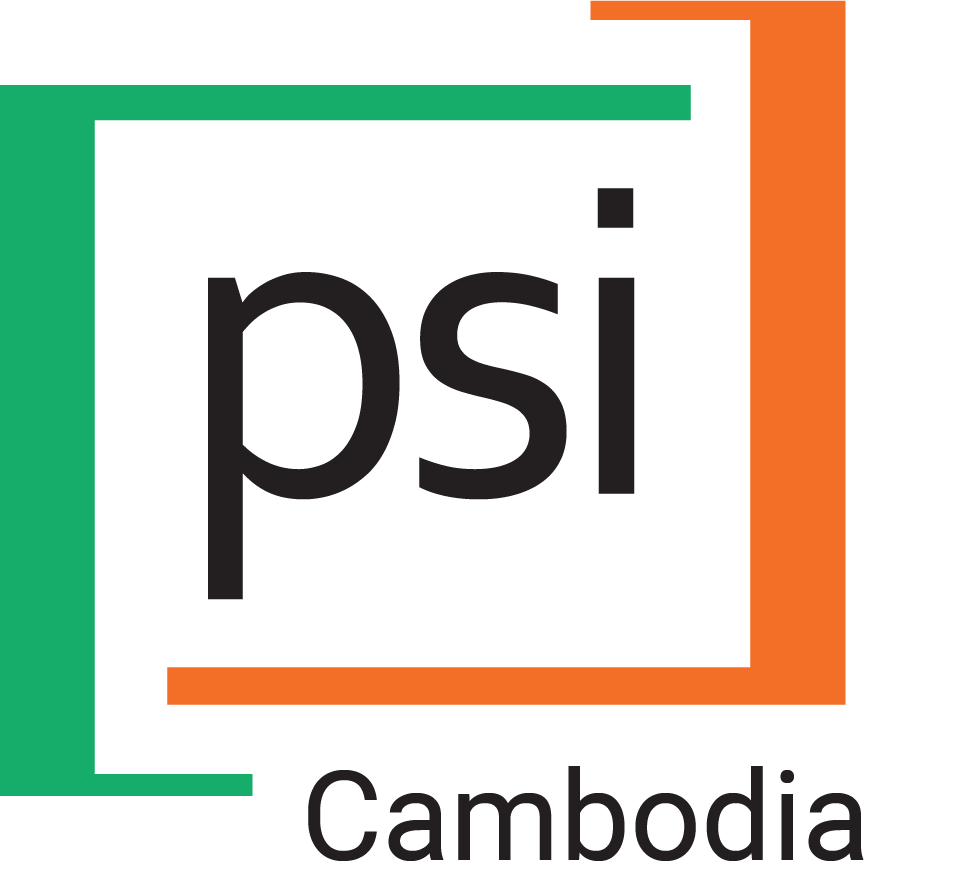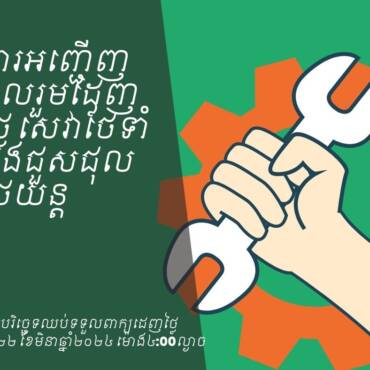Having a Proper Handwashing Station Reminds Kids to Wash their Hands Frequently
Lein Soklea’s children enjoy washing their hands after their mother installed a clean, nice handwashing station. For her two children, the new handwashing facility with soap and water is a fun way to help make the handwashing routine more fun.


The thirty-two year-old mother of a boy and a girl said that “my family did not have a proper handwashing station at our home. Our children often got sick with diarrhea.” But just like any parent, Soklea wants her children to grow as strong and healthy as possible. She does not want them to miss school as a result of getting sick with diarrhea or from poor sanitation.
Soklea built the handwashing station at home using locally available resources: bucket with lid for storing water, a tap, a soap and a bowl under to the taps to catch the dirty water. Her family can easily wash their hands regularly before meals.
Her village Khley located in Tuek Chrov Commune, Dambae District of Tbong Khmum Province has a population of 1,160. Chaem Seoun, the village chief, said that about 80% of the 239 households do not have proper designated handwashing stations in their homes.
The Promoting Healthy Behaviors (PHB) Activity, a five-year, USAID-funded, social and behavior change project, helps make it easier for rural households to wash their hands and to safely treat and store drinking water. Soklea learned about project’s activities from announcement played on the village loudspeaker set up by the village chief. She also heard directly from the village chief and text messages which increased her interest in the project.
She also added that “generally, I believe that spending on soaps for washing hands is better than spending on medications when getting sick.” Following simple instructions on the brochure provided by the project team, she was able organize a simple but efficient handwashing facility for her family!
Soklea does not only help to protect her family from diseases, especially diarrhea. Her neighbors’ children often come to wash their hands at her new handwashing station which is set at the front of her house. This inspires their parents to build ones for their children.


* The Promoting Healthy Behaviors (PHB) Activity is a USAID-funded Social and Behavior Change project that commenced in 2018. The goal of PHB is to improve health behaviors among Cambodians and ensure they seek and receive quality healthcare with decreased financial hardship. PHB initially targeted 6 key health areas: Maternal & Child Health; Nutrition; Water, Sanitation and Hygiene (WASH); Tuberculosis; Family Planning; and Malaria. In 2020-2021, PHB also implemented COVID-related activities in response to the global pandemic. Towards the end of 2021, noncommunicable diseases (NCDs) were added to PHB’s health portfolio, and the project was extended until June 2025.



